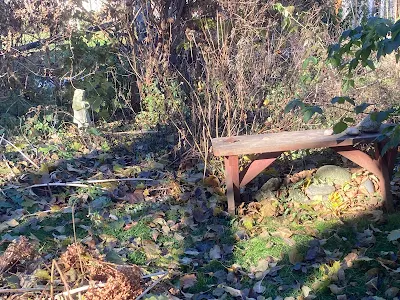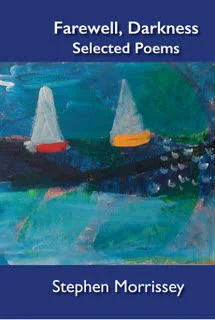Preface
he Green Archetypal Field of Poetry: on poetry, poets, and psyche is a
collection of essays and short statements on poetry and poetics. This book complements my previous book, A Poet’s Journey:
on poetry and what it means to be a poet
(2019) also published by Ekstasis Editions. I’ve spent many years in the
solitary work of writing poems and thinking about poetry; this book summarizes,
explains, and enlarges on that subject. The book is divided into three
sections; they are: ideas about poetry and writing poetry; a discussion of several
Canadian poets, including F.R. Scott, A.J.M. Smith, Louis Dudek, and the poets
I knew from the early days at Véhicule Art Gallery; and shamanism, psyche, or
soul in poetry.
1 H.W. Garrod in his book, Poetry and the Criticism of Life (1931),
writes that it was Seneca “who first said, what Ben Jonson and many others have
said after him, that the critic of poetry must be himself a poet.” There is a tradition
of poets writing about poetry; Louis Dudek’s writing is full of a contagious
enthusiasm for poetry; Irving Layton wrote with bravado about the importance of
poetry in Waiting for the Messiah
(1985), and there are important statements on poetry in the prefaces of some of
his books. Three other books of essays and commentaries on poetry need to be
mentioned: co-edited by Louis Dudek and Michael Gnarowski, The Making of Modern Poetry in Canada (1967); An English Canadian Poetics
(2009) edited by Robert Hogg; and On
Poetry and Poets, Selected Essays of A.J.M. Smith (1977). I also recommend George
Whalley’s extraordinary Poetic Process,
an essay on poetics (1967).
2 In Canada we rarely celebrate our poets,
I refer to poets of previous generations; even poets who died only five or ten
years ago seem to have never existed judging by their absence from our cultural
or daily life, or their being mentioned for their poetry, or their poetry being
quoted. We don’t name bridges or airports after our poets, that’s reserved for
dead politicians no matter how dubious their contribution to our national life.
This collective amnesia does not augur well for our future; if we can't even remember
a few dead poets who helped define what Canada means, then what kind of a
country will we end up having?
3 What are the perennial qualities of
poetry? There is the dichotomy between two approaches to poetry, two types of
poets, Apollonian and Dionysian, classical and romantic, formal and informal,
cosmopolitan and nativist. No matter which group of poets one falls into one of
the things that makes for great poetry is if the poet has found his or her authentic
voice: has the poet written something that is true to their inner being and is
insightful of the human condition; and the corollary of this: does the poem
move us emotionally, spiritually, or intellectually? This is the type of poetry
that interests me; these perennial qualities make for great poetry.
4 My approach to poetry has always been
intuitive. Intuitive people know that intuition gives us knowing but without
proof, while intellectual knowledge is substantive but often lacks the insight
and originality of intuition. When intuition precedes intellectual
understanding, as it does, then it is necessary to find evidence for one’s intuitions. Most of my insights into poetry—for
instance, and I’m obviously not the first to
say it, that poetry is the voice of the human soul—originated intuitively. In
this book I am trying to substantiate my intuitive insights into poetry, this
has helped me to better understand my thinking on poetry and, I hope, it is of
interest to readers.
5 No real poet ever decided to be a poet,
it doesn’t work that way; if it was a decision they probably didn’t last long
writing poetry. I answered a call to do this work and now I ask, is there
closure on this activity that has dominated my life? This book is closure for
my writing about the meaning of poetry but, as for writing new poems, I don’t
want to end up as some old poets do, and that is publishing perfectly written
but meaningless poetry. I hope I will be long gone before that happens. Of
course, there may still be a few poems to write, and a few odds and ends to
write about poetry; there is no age for retirement for poets, there is just the
slow act of disappearing.
Stephen
Morrissey
Montreal,
Canada
16
November 2021
Morrissey, Stephen. The Green Archetypal Field of Poetry: on poetry, poets, and psyche. Ekstasis Editions, Victoria, 2022.















.JPG)









.jpg)








.JPG)